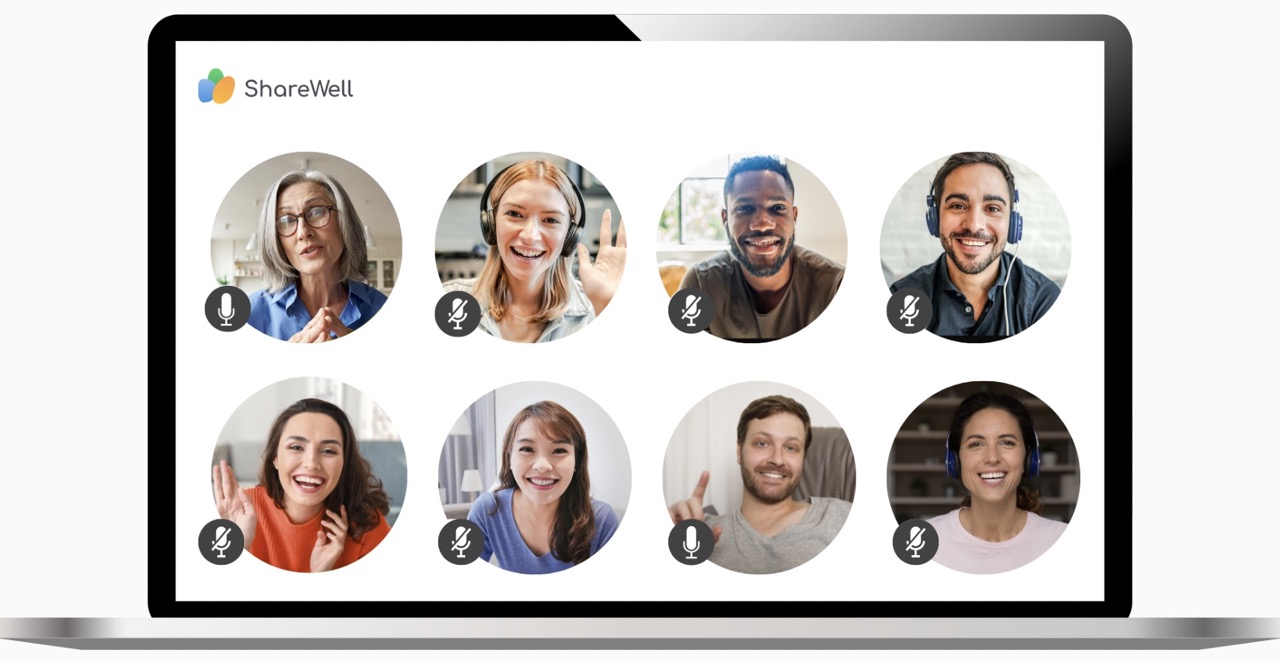ShareWell wants to scale mental health support with its 10,000 support groups
Therapists — if you can even find one that takes your insurance or new clients — can add a layer of sadness to your wallet even as you’re trying to rectify your own mental health wobbles. ShareWell believes it has an alternate take, with a far more affordable peer-support model, which lands it somewhere between special interest forums and online communities, coaching and therapy. The company’s thesis is that people who are in the same proverbial boat can offer each other support (but, emphatically, not advice!) to alleviate the burden of going at it alone.
“I started ShareWell because peer support really helped me in what was probably the most difficult phase of my life,” said founder and CEO CeCe Cheng in an interview with TechCrunch. “During the pandemic, I was in what I would call an emotionally abusive relationship. I had a therapist I was working with and she was really helpful, but when I was going through it, I didn’t really want to talk to my friends about it. I felt a lot of shame; sometimes even the best-meaning friends couldn’t exactly understand what I was going through.”
Cheng set out to put together a better solution for that, to battle her own isolation in her experience, but also to create a tool for people to lean on each other using modalities that already exist. She points to other successful peer-based support groups such as Alcoholics Anonymous.

A Sharewell session in progress. Image Credits: ShareWell.
“I looked online, and it was shocking how little I could find; I found dead links, a lack of information, and frustration,” says Cheng. “Often, there was just a zoom link that you joined at a certain time and you hoped that other people showed up. Sometimes it was three people that showed up; other times there were 20. It just didn’t feel very safe. I did find some Reddit forums and Facebook groups, which I thought was pretty shocking at this day and age, that there wasn’t a better place to go.”
People need all the help they can get. The pandemic aggravated an already critical mental health crisis, triggering a 25% increase in depression and anxiety nationally while 77% of Americans live in counties where mental health care is hard to access. The company wants to offer an alternative, with live human support that is effective, affordable and accessible.
ShareWell told TechCrunch it raised a $1.3 million pre-seed round, which it says includes investments from Adrian Aoun, CEO and co-founder of Forward; Kyle Vogt, co-founder of Twitch and CEO and co-founder of Cruise; Russell Simmons, former CTO and co-founder of Yelp; Margo Georgiadis, former CEO of Ancestry.com; Charlie Cheever, former CTO and co-founder of Quora; Rob Hayes, first investor in Uber; and Quiet Capital.
That’s a hell of a lineup of investors, and it speaks to Cheng’s deep roots in Silicon Valley; before splitting off from her investor career and founding this company, she was at FirstRound Capital and Makers Fund.
Personally, I’m skeptical about turning to the internet for help and advice, given the general quality of information that is available online, but Cheng assures me the company has thought about safety from the bottom up.
“We built a video and community platform with our own safety features. For the video sessions, we have the rule of three, which means that every virtual session requires a host and at least two attendees for the session to start. If at any time a person drops out and it goes below three, everyone goes into a waiting room,” says Cheng. “The site prohibits one-on-one communication anywhere, which in itself limits abuse cases. We also have sitewide blocking; if there’s something that makes you feel uncomfortable, you can block someone and you will never be in a session with them again, you will not see their forum posts; they are fully blocked. There are also reporting and flagging features everywhere. We also have a rating feature for hosts and for sessions. Bad actors will be flagged, blocked and reported, and if that happens multiple times, the team steps in. We haven’t actually had to do that, as the community is regulating itself.”
The company’s special sauce is in how it thinks of the peer group system, and the accompanying rules. The key aspect is to share your own experiences only, rather than giving advice to the other people on the call.
“We define peer support as the sharing of experience, not advice. That is the number one most important rule in our community guidelines. We are here to share experience and to support each other. We can relate to things that we’ve learned from our personal or professional experiences, but it is against the rules to give advice, to diagnose, etc.,” Cheng says. However, she also says that nobody from ShareWell is actively monitoring sessions in progress. “Anyone can create and host a peer support session after they’ve attended one session on the platform. We have a lot of host training materials, and we support the hosts.”
The company told me that in instances where someone is clearly struggling and in need of professional help, the hosts were not allowed to encourage someone to seek the assistance of a therapist or other professional.
“Right now [asking someone to seek professional help] is frowned upon, because that crosses a line of giving advice, but if I saw someone who I felt needed therapy, I would probably talk about my own experience about how therapy really helped me get through certain things,” Cheng said. “In the future, we think that we will be able to refer people to modalities beyond peer support. We see already that people want coaching and therapy, etc., but we see peer support as the home base of the community, and from there we connect people to resources outside ShareWell.”


